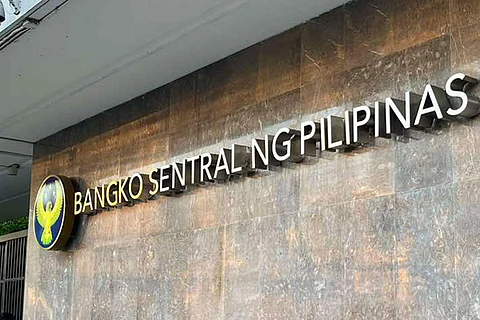
- NEWS
- the EDIT
- COMMENTARY
- BUSINESS
- LIFE
- SHOW
- ACTION
- GLOBAL GOALS
- SNAPS
- DYARYO TIRADA
- MORE

Bangko Sentral ng Pilipinas (BSP) might lower its policy rates twice this year as recent inflation rates remained low, Finance Secretary and Monetary Board member Ralph Recto said.
He estimated the reductions will be at 25 basis points each, pulling down the BSP policy rate from 5.25 percent to 4.75 percent by the end of the year.
Recto said the country’s relatively low commodity and service prices support further benchmark easing of banks’ interest rates which could drive economic growth.
“Our own inflation rate so far looks good,” he said.
Data from the Philippine Statistics Authority showed the average inflation for the first half of the year stood at 1.8 percent, below the BSP’s target range of 2 to 4 percent.
Economists said that lower local interest rates would further strengthen local household and corporate spending, offsetting the country’s economic losses from weak demand for goods from foreign markets due to the tariff policy of US President Donald Trump.
However, Recto said the BSP might ease its policy by just one cut for the rest of the year if the US Federal Reserve keeps its own policy rate elevated.
Economists said a wide gap between the local and foreign policy rates could reduce direct investments to the Philippines and weaken the peso against the US dollar, resulting in higher local inflation.
U.S. actions watched
“I think we have room to cut [the BSP] rate, maybe not two cuts because it depends on what happens in the US as well,” Recto said.
“But as of today, we’re okay for two rate cuts,” he added.
Recto’s statements followed economic growth, which increased slightly to 5.4 percent in the first quarter of 2025 from 5.3 percent in the fourth quarter of 2024.
Economists attributed the decline to lower household and corporate investments in fixed assets, due to concerns about the impact of Trump’s tariffs. These investments fell by over 3 percentage points quarter-on-quarter. Philippine exports also declined to 6.2 percent from 7.5 percent.
Domestic, external risks
In a report by Reuters, analysts said they expect the Federal Reserve to maintain its US monetary policy rate at its two-day meeting this month due to rising inflation in the Western country. Analysts noted that American businesses are likely to begin passing on Trump’s tariffs to consumers.
Thus, US inflation rose to 2.7 percent in June from 2.4 percent in the prior month.
Rizal Commercial Banking Corporation Chief Economist Michael Ricafort said typhoons and floods could push up the inflation of some food items, such as vegetables, as their transport costs to public markets and supermarkets increase.
“Typhoons during the rainy season in the second half of the year, especially in the third quarter could lead to some transitory increase in food prices, which account for more than 35 percent of the inflation basket,” he said.
However, Ricafort projects overall inflation for the rest of the year to remain manageable or within the BSP’s target band of 2 to 4 percent.
